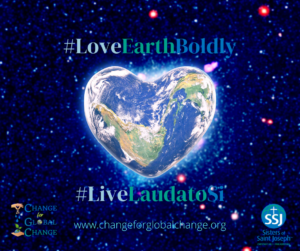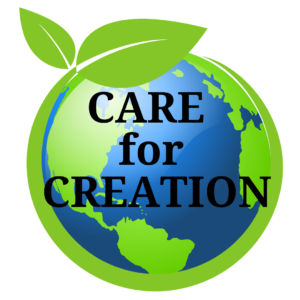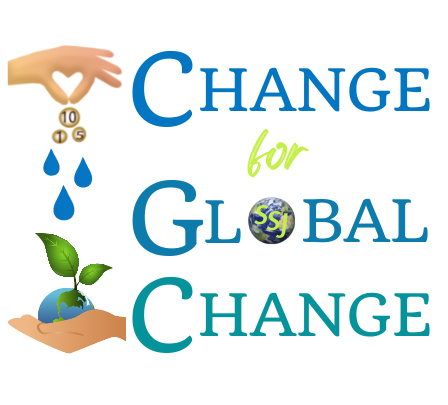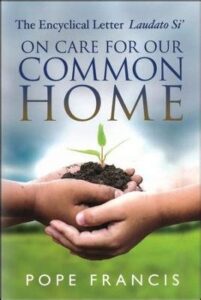Welcome to Change for Global Change
Join us for our Second Annual Walk a Mile in Their Shoes Virtual Walkathon!
Building on last year’s success, we invite you to walk in solidarity with those who must walk 4 miles every day to fetch water by participating either as a walker/ fundraiser or as a donor in our second annual “Walk a Mile in Their Shoes” virtual walkathon! Details are available on our Fundraising page.
Our Lifesaving Work
Who We Are
Change for Global Change is a 501(c)(3) organization founded by the Sisters of Saint Joseph of Philadelphia in 2006 as a practical way to respond to the needs of Earth and those who lack the means for a sustainable life. In union with our Sisters and Associates of the U.S. Federation and the worldwide “Family of St. Joseph” we serve the “dear neighbor” – every person on the planet – by doing all we can to make our home, Earth, sustainable for all. The climate crisis we now face affects everyone, but the world’s poorest people are suffering the most. Change for Global Change focuses on water, the primary need to sustain life, because nearly one-third of the population suffers from water scarcity.
What We Do
The mission of Change for Global Change is two-fold – education and action:
- Awareness – This website, along with our Facebook and Instagram posts, provides ongoing education about the people and places that lack basic necessities and the means to acquire them. We tell their stories and provide a wide range of information and activities from numerous websites to inform ourselves and others about situations that are so different from our own.
- Fundraising – With the help of many donors we provide grants for places where Sisters and Associates of Saint Joseph work with the people to organize communities and develop skills to accomplish the projects that bring more stability and sustainability to their lives. The projects we fund include access to water for drinking, agriculture, cottage industries, etc. in villages, schools and hospitals.
Join Us
We welcome your partnership in this important work, in all ways. Becoming involved can include making a donation, helping us educate others, or joining us in making small but ecologically-impactful changes at home that celebrate and heal our amazing planet Earth.
Board of Directors
Dannah Addalli, SSJ Associate in Mission
Sister Donna Breslin, SBS JPIC Liaison
Katherine Finke, SSJ Associate in Mission
Sister Margaret Jude Sullivan, SSJ
Sister Susie Thornton, SSJ
Sister Dorothy Urban, SSJ
Mary Vanderhoof, SSJ Associate in Mission
Sister Maryanne Zakreski, SSJ
Pope Francis and Laudato Si'
“Laudato Si’, mi’ Signore!” – “Praise be to you, my Lord!”
“Praise be to you, my Lord, through our Sister, Mother Earth, who sustains and governs us, and who produces various fruit with coloured flowers and herbs.”— St. Francis of Assisi
Saint Francis reminds us that our home is like a beautiful mother who opens her arms to embrace us and a sister with whom we share our life. (The Vatican, 2021)
Watch this video to learn:
“Ten Things You Need to Know About Pope Francis’ Laudato Si”

Integral Theology and an Ecological Conversion

In 2015, Pope Francis wrote his second encyclical, Laudato Si’, in which the Holy Father addresses not only Catholics, but all people on the planet. Laudato Si’ calls us toward sustainability in the spirit of integral ecology. Integral ecology can be understood broadly as the connection between humans and our environment. Pope Francis stresses that everything is connected. This means that our approach to ecology must be holistic.
Ecology goes beyond care for the natural environment. It embraces the vast network of relationships between all that is. Integral ecology requires “an integrated approach to combatting poverty, restoring dignity to the excluded, and at the same time protecting nature.” (LS n 139)
Pope Francis calls us to undergo an “ecological conversion.” But what does this mean? What is an ecological conversion?
Laudato Si Movement defines ecological conversion as the “transformation of hearts and minds toward greater love of God, each other, and creation. It is a process of acknowledging our contribution to the social and ecological crisis and acting in ways that nurture communion: healing and renewing our common home.”

